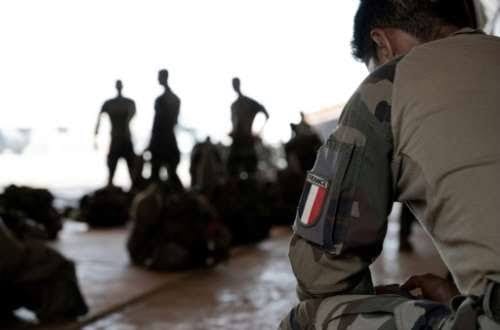International community divided on Niger coup response

More than three weeks after a military coup in Niger forced out a democratically elected government, the international community appears hopelessly divided on how to handle the new status quo, with fault lines appearing even among Western allies, analysts say.
Former colonial master France remains steadfastly opposed to the new regime in Niamey while Russia, predictably, sees the coup as a chance to boost its influence, with everyone else somewhere in between.
France immediately condemned the coup, and let it be known that it might support African armed action to re-instate Mohamed Bazoum as president.
But Niger’s neighbors, who would most likely take charge of military intervention, let their own ultimatum addressed to the new regime pass without sending in troops.
West African military chiefs started a two-day meeting in Ghana on Thursday to discuss a possible armed intervention after the Economic Community of West African States (ECOWAS) agreed to activate a “standby force to restore constitutional order” in Niger, but did not say when, or even whether, it would be used.
- ‘Calamitous consequences’ –
One ECOWAS member, Cape Verde, has come out strongly against the use of force, with President Jose Maria Neves saying efforts to restore constitutional order should not “under any circumstances include military intervention or armed conflict”.
A view shared by Solomon Dersso, managing director at the Amani Africa research group, who said armed intervention could trigger “calamitous consequences”, including the entire region being engulfed in war.
Instead of acting as a deterrent, sanctions and the threat of military action had given the new government in Niamey ammunition to stir nationalist sentiment among Nigeriens “and ride on their anti-neo-colonial sentiments”, Dersso wrote.
Analysts said military action would need support from the African Union, a pan-African body, which has been silent since meeting on the Niger question on Monday, a sign of internal divisions.
Mali and Burkina Faso, where military governments took over in coups in recent years, have expressed their support for the new government in Niamey.
- ‘Confused, muddled’ –
Subtle but important differences have meanwhile emerged between the two western powers most involved in Niger, the United States and France.
Washington keeps a permanent force of 1,100 soldiers in Niger to fight jihadists linked to Al-Qaeda and the Islamic State group, and “we don’t want to see that partnership go”, said Sabrina Singh, a spokeswoman for the Defense Department in Washington.
“We have invested hundreds of millions of dollars into bases there, trained with the military there, we really want to see a peaceful resolution,” Singh said.
Officially, it is US policy to abstain from military cooperation with governments coming to power through a coup.
“But that’s a flexible definition,” said Colin Clarke, director of research at the Soufan Group consultancy, pointing to Washington’s continued cooperation with Egyptian general Abdel Fattah al-Sisi who in 2014 took power after a military coup he was involved in.
“The American position is confused, muddled,” Clarke told AFP.
France, which keeps 1,500 troops in Niger for the battle against jihadists with the help of local soldiers, has meanwhile stuck to its inflexible position towards the West African country’s new rulers.
President Emmanuel Macron’s government last week gave unconditional support to ECOWAS when the military option was still favored by the organization.
“Our position is to support ECOWAS,” a French diplomatic source told AFP.
“It is up to ECOWAS to take its decision, either in favor of sanctions, or in favor of a military intervention threat,” the source said.
European Union heavyweight Germany on Thursday called on the EU to impose sanctions “against the putschists”.
- ‘Very transparent’ –
Analysts said Russia is a beneficiary of western divisions, with the Wagner paramilitary group — loyal to Moscow despite cooler ties with the Kremlin since a short-lived rebellion in June — waiting in the wings.
Wagner is active in the Central African Republic, in Sudan, in Mali despite Bamako’s denials, and is looking for a role in Burkina Faso.
Niger, with its wealth of natural resources, looks an attractive target for the group.
“Wagner is very transparent about what they are there for,” Clarke said. “They are not going to lecture the regime on human rights. They are here to get access to resources and in return they will provide political security.”
The Sahel region’s insurgents, meanwhile, continue to strike. On Tuesday 17 Niger soldiers were killed by suspected jihadists near the western border with Burkina Faso “in a terrorist ambush”, the defense ministry said.
dla/jh/bp
©️ Agence France-Presse












